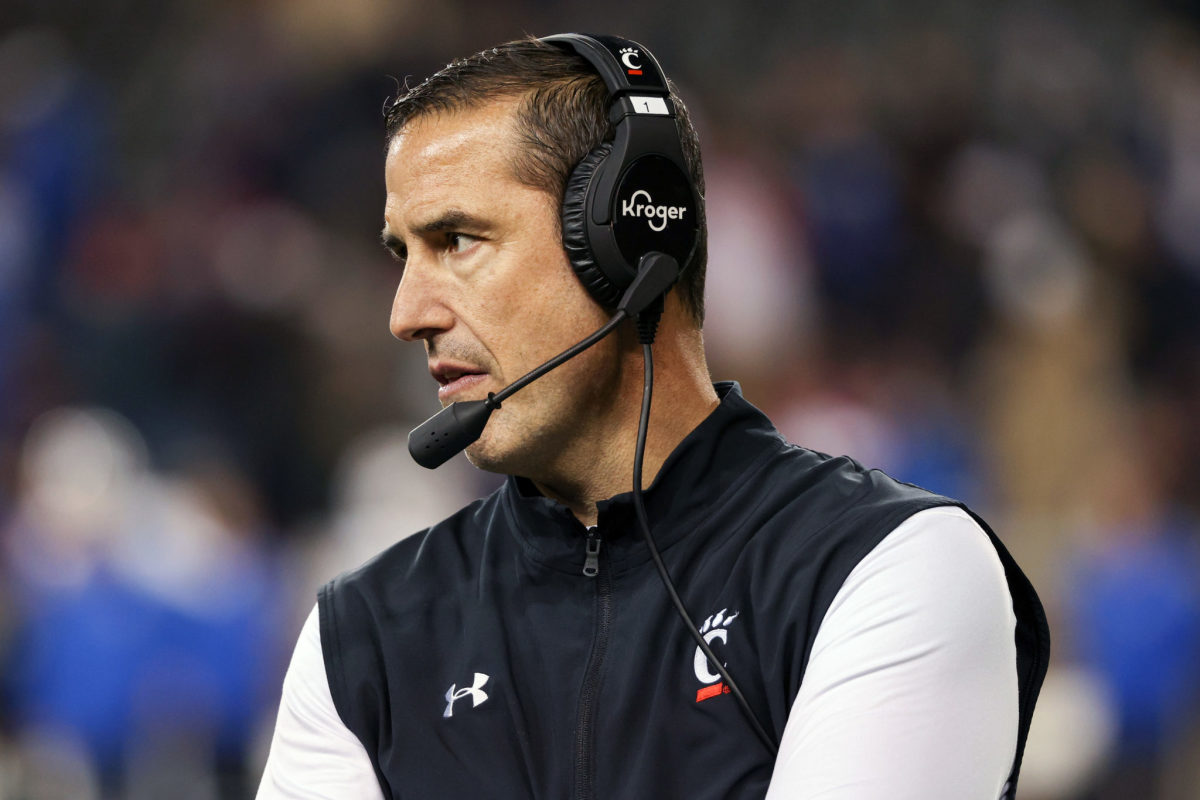
Luke Fickell is fresh off of his best season at Cincinnati that saw the Bearcats become the first Group of Five team to make the College Football Playoff.
Now he’s using his platform to call for a change to one of the sport’s most controversial rules.
On Saturday, Fickell was honored Saturday as the FWAA’s Eddie Robinson Coach of Year in Indianapolis. While at the podium, he was asked he would change about current rules across college football. He used that question as an opportunity to call for more lenient punishments for targeting penalties.
According to
Cincinnati’s Luke Fickell, honored as FWAA’s Eddie Robinson Coach of Year in Indianapolis, said if he could change one rule it would be “stop ejecting kids out of college football games (for non-malious targeting calls).”
— Brett McMurphy (@Brett_McMurphy) January 8, 2022
” target=”_blank” rel=”noopener noreferrer”>Action Network’s Brett McMurphy, Fickell wants the rules committee to “stop ejecting kids out of college football games (for non-malicious targeting calls).”
Cincinnati’s Luke Fickell, honored as FWAA’s Eddie Robinson Coach of Year in Indianapolis, said if he could change one rule it would be “stop ejecting kids out of college football games (for non-malious targeting calls).”
— Brett McMurphy (@Brett_McMurphy) January 8, 2022
Fickell knows exactly how devastating an ejection for targeting can be. Last season against Georgia, the Cincinnati head coach watched from the sideline during the Peach Bowl as his all-conference left tackle James Hudson was tossed from the postseason game for targeting after launching himself into Georgia cornerback Tyson Campbell.
The NCAA implemented such harsh penalties for targeting back in 2019 to try and limit the number of dangerous hits to the head. In addition to ejections, players face a half-game suspension following a targeting ejection and can also be given a one-game suspension for three such penalties in a single season.
Fickell isn’t the first major voice in college football who has disagreed with ejections for targeting. A number of other head coaches and analysts have disagreed with having such a harsh punishment in place for young players.
The powers-that-be in college football haven’t indicated that a change is coming to the targeting rule anytime soon, but it’s possible that Fickell’s latest comments could get the ball rolling as soon as this offseason.